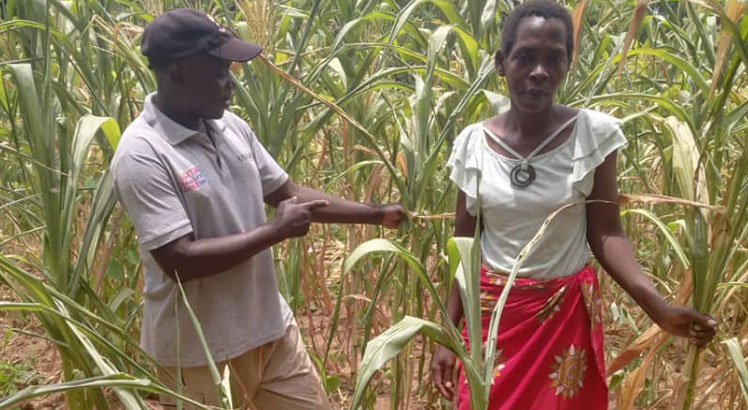Dry spell puts lives at risk
Care East, Central and Southern Africa says the record dry spell that has hit Southern African countries, including Malawi, has put millions of people’s lives at risk and driven communities on the brink of humanitarian emergency.
In a press release dated March 13 2024, the humanitarian organisation said the region is experiencing the lowest rainfall recorded in at least 40 years, with devastating consequences for agriculture, water availability and livelihoods.
Care further states that a combination of crop failure, widespread wilting of crops and over 9 000 drought-related cattle deaths have been recorded between October 2023 and February 2024.
Care Southern Africa regional director Matthew Pickard expressed grave concern over the situation, saying it is pushing Southern Africa to the brink of a humanitarian crisis.
“Coupled with an ongoing cholera outbreak, millions of people are facing severe hardship. Crops are wilting, livestock are dying, and millions of people are facing severe food and water shortages. The situation is particularly dire for women and girls, who often bear the brunt of such emergencies,” he said.

Care further reports that the relentless dry spell not only persists but is also increasing in scale and without immediate interventions, the future of southern Africa is bleak.
In Malawi, the World Food Programme estimates that over 6.8 million people are experiencing food shortages, while in Zambia, where a national disaster has been declared, five million people have been affected due to a persistent dry spell in seven provinces.
Over 5.3 million people are facing acute hunger in Zimbabwe while another 7.6 million may face it by September 2024. In Madagascar, 601 000 individuals face severe food scarcity.
Reacting to the news, Coordination Union for the Rehabilitation of the Environment (Cure) executive director Charles Mkoka said climate change knows no boundaries, as such, Africans should work together to tackle the challenges.
He further said climate-related challenges are becoming increasingly prevalent as the world continues to change due to emissions affecting the atmosphere.
Minister of Agriculture Sam Kawale asked for more time, but was yet to respond as we went to press at 8pm yesterday.
However, in December last year he told The Nation, that government outlined initiatives to combat the effects of El Nino, stressing collaboration with public and non-State actors. He said crop diversification, water management and soil conservation are the El Nino mitigation measures that farmers are urged to adopt.
On his part, agriculture policy expert Tamani Nkhono Mvula said the country has potential to be food secure even if the rains do not come in the next four years.
But he faulted government for allocating over K161 billlion to the Affordable Inputs Programme in the 2023/2024 National Budget despite the initiative failing to produce results.
In February, the Department of Climate Change and Meteorological Services told the The Nation that the country will continue to experience dry spells till the end of the rainy season in April this year.





